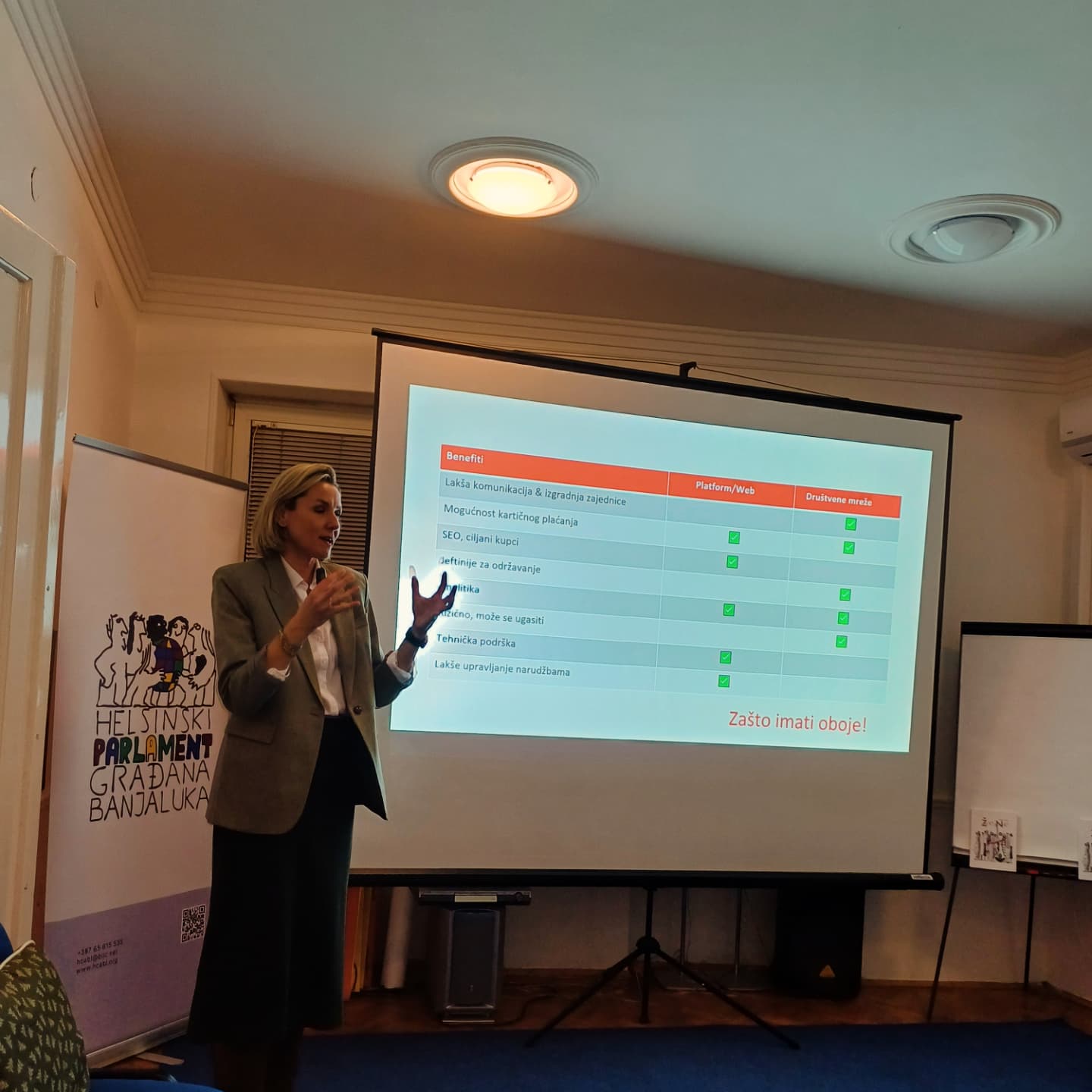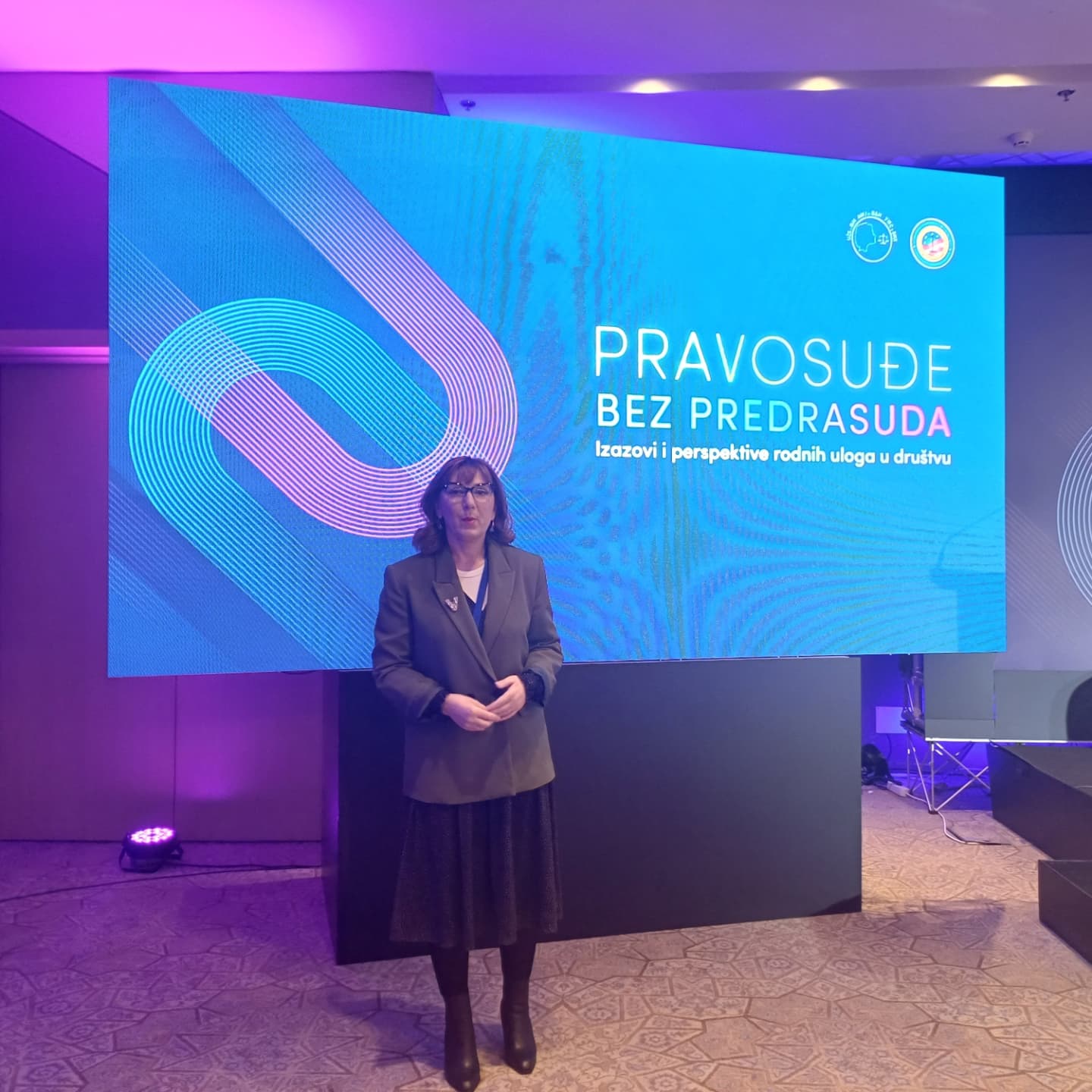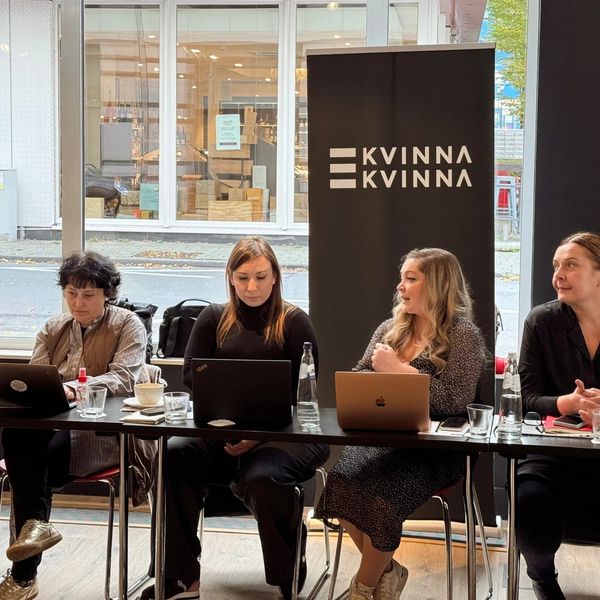As part of the cooperation with journalists within the project “Citizens in the Fight against Silent Corruption”, we bring you a collaboration with the Nezavisne novine portal and a text on the subject of sexual extortion, with the title “Victims of Sexual Extortion Fight a Double Battle”.
Sexual extortion (sextortion) is certainly one of the most frequent social problems in BiH, which occurs when someone with power uses that “privilege” to demand sexual services in order to “help” those who depend on him.
Or, in layman’s terms, sexual extortion is a phenomenon, when, for example, the director of a company or a governing body uses his position to ask for sexual favors from his employees in exchange for a promotion at work, a salary increase or, for example, to ask students for sexual services to pass exams, or to extort (implicitly or explicitly) “sexual activities” from patients for the sake of better health care.
And one of the examples can be when a person is asked for sexual favors so that their “controversial recordings” or various personal things are not published.
We should recall the case of a sex affair at the Faculty of Law in Sarajevo, where two professors of that educational institution were suspended for the rest of their working lives for working with students.
There were also cases where professors were “caught in the act” with their female students, and it should be said that the most frequent victims of sexual extortion are women.
What is very important to note is that sexual extortion is not the same as sexual harassment, which, as our interviewees say, hardly anyone separates.
As a reminder, sexual harassment is a form of sexual violence that includes any form of unwanted verbal, non-verbal or physical behavior towards another person, which constitutes a violation of their dignity, the creation of a hostile, humiliating or offensive environment (explicit sexual comments, vulgar jokes, inappropriate gestures or exposure to pornographic contents).
Victims rarely speak directly to journalists
The media in BiH did write about the above-mentioned cases, and also about several other examples, but when we look at this issue in its complete context, very few cases end up being published in the media.
People from the media industry say that sometimes their hands are simply tied, because you cannot talk about someone’s experience and problem if that person does not want to share it publicly.
But everyone agrees that sexual extortion is much more widespread than is being talked about and reported.
“Everything happens according to the principle – it is not in the window, it is in the store. Only a small number of cases reach the media, and public perception indicates widespread problems in the field of employment and especially promotion. The problem is that the victims usually remain silent about it, or only tell those closest to them in confidence, either to succumb to blackmail and pressure or to have a hard time dealing with the whole situation,” says Marko Divković, president of the Association of BH Journalists.
According to him, he has encountered such cases throughout his long career.
“Currently, I know of two, where the victims, women, told me even the smallest details, but they do not want it written about. The reasons can be the fear of revenge, but also the fear of the so-called media stretching and primitive accusations, fear of the reaction of the environment”, says Divković, who also believes that even some media, if such cases are discovered, behave unprofessionally, due to which the victims are traumatized twice as hard.
He agrees that nowadays very little distinction is made between sexual extortion and harassment, which is proof of how little is actually known about this.
“The fact is that many do not make a difference, and this is only proof that in the media there is either misunderstanding or negligence or ignoring. When things like this come before the court, there is always a problem of proof, and the victims are then exposed to some kind of disparagement according to the ‘lawyer defense strategy,'” he points out and adds:
“When we talk about this problem, it is ungrateful, but necessary to mention the abuse of sexuality in the sphere of education and in the sphere of business relations, in order to achieve the goal, which at first is not a problem, because it boils down to the principle of voluntariness. However, voluntariness often gets out of control, so it ends up from the moral into the criminal-legal sphere. Where the boundaries are is difficult to answer. It seems that issues of sexual blackmail, harassment and abuse are an area that we generally know little about, even less talk about publicly, except when there is an escalation that cannot be hidden.”
******
Brankica Spasenić, a journalist who has been following all socio-political topics in BiH for years, with a special emphasis on the black chronicle, confirms that she had the opportunity to investigate cases of sexual extortion, but, as she says, it is a very dangerous and difficult to prove phenomenon.
“A few years ago, I investigated cases of sexual extortion in a public company. It was even about, I can say openly, a very shameless and unscrupulous attempt of sexual extortion by a person who worked in the management structure towards female candidates who were interested in working in that company, who were applying for the job, and later, as I found out, and towards the employees themselves.
If we are talking about public companies, there are people in directorial and decision-making positions who were appointed there on the basis of party-political ‘merit’, so the reporting, prosecution and punishment of such perpetrators is, unfortunately, very often doomed to fail,” says Spasenić.
On the other hand, she is of the opinion that we are largely aware of the existence of sexual extortion, but do not recognize it as a big problem and a social scourge.
“I would bet that everyone knows at least one person who got a job, promotion or position through ‘sex trade’. This topic is hardly reported. The most common reason why they are rarely reported is that the injured parties do not want to “compromise” themselves, convinced that, for the reasons listed above, such reports are a fiasco. In the rare cases when there is media coverage, I think that my colleagues do their job correctly”, says Spasenić.
Spasenić has been actively following various trials in Banja Luka for 15 of the 20 years she has been in journalism and, as she says, she has never come across a single case of “sextortion” in the literal sense of sexual corruption, i.e. extortion for the purpose of promotion/ employment/privilege.
“I am not claiming that they did not exist, but then they must have been so rare that for this year of working in Banja Luka, I did not see a single such indictment, trial, let alone a conviction. On the other hand, I wrote about some cases of extortion where the suspects (accused) demanded sexual services by threatening to publish compromising videos or information. Such cases, due to the protection of the victim, were usually closed to the public,” she explains.
The importance of professional reporting
And other colleagues, who, it can be said, are specialists in black chronicle and events in courtrooms, admit that they have not come across cases in which the police and prosecutors are investigating sexual extortion.
“We have all heard in some chatings that something like that happened, but as far as I know, no investigation has been conducted in such cases so far. In other words, it may have been conducted, but due to the protection of the victim, it was closed to the public,” says journalist Goran Obradović.
He believes that journalists, in case they report on this and similar topics, still take care to protect the victim.
“Because this is a prerequisite for them that some other potential victims contact them and tell their story. Surely there are journalists who would use the victim for their own promotion, but I am of the opinion that most journalists work professionally. There are certainly also editors, who should not allow the text to be released to the public if information about the victim is revealed or if sensitive writing is done on the subject,” notes Obradović.
Building on what was said previously, journalist Nikola Morača says that as proof of how much attention is paid to sexual extortion and similar acts is the fact that they are not in the Criminal Code of the Republic of Srpska.
“There are only variations on the theme, like sexual harassment or abuse at work. However, looking at these mentioned crimes, it is easy to conclude that the legislator threatened by miserable punishments, so I assume that if they include the criminal offense of sexual blackmail or extortion, there will not be some kind of punishment. What is a particularly aggravating circumstance is that such criminal acts would most likely be prosecuted after the personal request of the injured party, and that is additional pressure on the victim,” emphasizes Morača.
He does not express any doubt that this exists.
“I have not the slightest doubt that this does not exist, especially if it is known that corruption and nepotism reign in Srpska. However, I do not believe that this is so pronounced in state-owned companies, where all employees have “strong connections” and, as the anecdote says, they are mostly relatives. The problem is, of course, in private companies, but why these cases are not reported, I think the answer is clear, fear for existence”, said Morača.
Is there sextortion in media companies?
And while a small number of victims decide to address the media at all, is sexual extortion something that happens in the media community as well?
“I have no knowledge of whether and to what extent sexual extortion or harassment are present in the media, nor are there any such reports in the helpline for journalists at BHN. Are there any, I believe there are, because there are about 700 media houses in Bosnia and Herzegovina (more than 600 portals, newspapers, radio, TV, agencies), but knowing the kind of society we live and work in, and how our judiciary functions, I believe that are sexual harassment and extortion are extensively widespread,” answers Marko Divković, president of the BH Journalists Association.
Journalist Goran Obradović therefore says that he is sure that there have been such cases.
“There were stories among journalists that some journalists quit their jobs because they often received inappropriate comments from their bosses. But, as far as I know, they did not report any of those cases to the police or speak publicly,” Obradović added.
Our interviewees agree that as soon as possible this form of corruption and obvious criminal offense should be clearly legally and judicially defined, which would, at the same time, provide legal and physical security to those who report this type of violence.
This activity was implemented within the project “Citizens in the Fight against Silent Corruption”, which is part of the wider program “Support to Citizens in the Fight against Corruption”, implemented by CCI, with the financial support of USAID. The content is the sole responsibility of the Helsinki Citizens’ Assembly Banja Luka and does not necessarily support the views of USAID or the United States Government.
Photo: Pixabay





